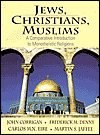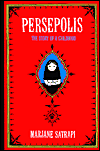|
|
|
NOTE: A change has been made to the Important Dates below!
This class is designed to give you an overview of three major religious traditions usually associated with the West or Western Civilization: Judaism, Christianity, and Islam. It is obviously inadvisable, if not impossible, to give a thorough and complete introduction to three religious traditions with such rich history and diversity in ten short weeks: The goal is not total knowledge, but rather enough of an introduction so that you may understand the very foundational elements of these religions and acquire enough basic religious studies expertise to pursue further study on your own.
The course is divided in lectures (MWF) and discussion sections (varied days and times). In lecture, the professor will go over important information from the days readings, providing both broad framework and specific examples to facilitate understanding. Discussion sections will be open for discussion of material covered in lecture and readings, and also in-depth discussion of the major themes of the course.
As a lower division religious studies class, RLST 7 is also designed as a practical overview in methods for studying religious traditions, on their own and comparatively. Therefore, one of the goals of this course is to encourage you to think about the study of religion more broadly: its problems, its pitfalls, its rewards.
1. Attendance and participation (15%). Attendance in lecture is strongly recommended, and attendance in discussion section is required. Standards for participation will be determined by individual teaching assistants (generally not only attendance, but active participation in discussions).
2. Three mini-exams (15% each = 45%). You will have three mini-exams in weeks four, six, and eight on significant aspects of Judaism, Christianity, and Islam (respectively). Study guides and overviews for the mini-exams will be posted here.
3. Response journals (30%). You must complete two response journals. Each journal consists of an informed response to a graphic literary representation of a western religion and consideration of a series of questions (in a variety of formats) listed here. Each journal assignment is due on the dates listed below at the beginning of class. Late assignments will not be accepted.
Response journal #1: Tragedy and Identity: Maus by Art Spiegelman Response journal #2: Family and Society: Persepolis by Marjane Satrapi
4. News journal (10%). Due June 9, at the beginning of class. Find three news articles (one each on some aspect of Judaism, Christianity, or Islam) from 2006 and summarize the content of the article and how deeper knowledge of Western religions might illuminate some aspect of the article topic. Articles must be attached to the news journal. More details and suggestions for appropriate venues can be found here.
You should be familiar with UCRs regulations on academic honesty and plagiarism (available online: http://senate.ucr.edu/bylaws/PDF Files/P3 Ch6.pdf); any instance of cheating or plagiarism will be punished with a zero grade and will be referred to the University administration for reprimand.
Links below take you the amazon.com page for the listed books; there you can find some deals, and also used books. Other online vendors for used books include:
If you order from an online vendor, please order sooner rather than later.
Our main textbook for this course will be:
Jews, Christians, Muslims: A Comparative Introduction to Monotheistic Religions, ed. John Corrigan, Frederick M. Denny, Carlos M.N. Eire, and Martin S. Jaffee. Prentice Hall, 1998.
In addition, a sourcebook has been ordered for this class:
Western Ways of Being Religious, ed. Gary Kessler. McGraw-Hill, 2002.
Finally, two graphic novels have been ordered for this course. These are the novels on which you will base your two response journals, and they should also be available at the bookstore:
Maus: A Survivors Tale, I: My Father Bleeds History, by Art Spiegelman. Pantheon Books, 1992.
Persepolis: The Story of a Childhood, by Marjane Satrapi. Pantheon Books, 2003.
A few additional required readings will be accessible online through the course website (these readings are underlined on the print syllabus distributed in class). You must access the course website and print out these readings.
A course website has been developed for this course, which can be found here:
[link removed]
In order to accomplish all the work in this class, you will need to check this course website regularly. Written assignments will not be distrbuted in class, but are available on the course website. Likewise, topics for discussion section must be accessed before each section meeting so you can properly prepare. All announcements will be posted on the home page of the course website. Lecture outlines are available on the course website, as will study guides to help you digest the material and prepare for exams. Additionally, you will find contact information and further links and resources to assist in your learning experience. Finally, be sure to check out the lengthy list of frequently asked questions, including the always popular What is plagiarism? and How do I do well in this class?
In addition to the main course website, a Blackboard site has been set up for this class as well. In order to access the site, go to [link removed] and log in. You should see a link to RLST 7 (and, if your TA has chosen to do so, a link to the Blackboard site for your specific discussion section). Once you click on that link, you will have access to course announcements, communications (email the professor or your classmates), and discussion boards.
Mark your calendars now!
April 24: Judaism mini-exam May 1: Response journal #1 due (beginning of class) May 12: Christianity mini-exam (note: this is a change from the original schedule!) May 26: Islam mini-exam May 31: Response journal #2 due (beginning of class) June 9: News journal due
|









